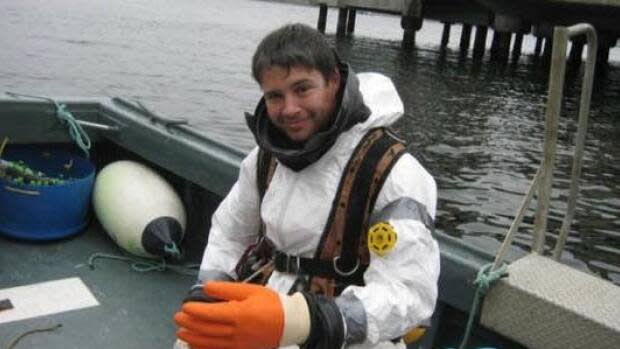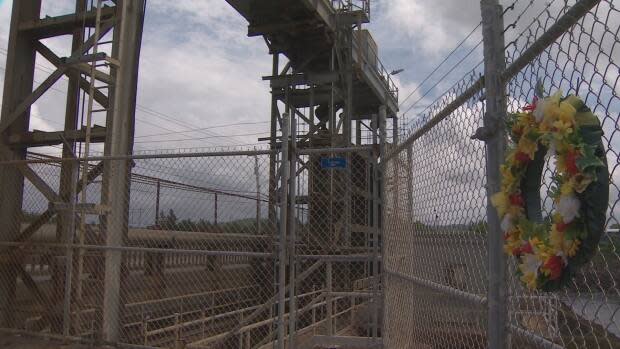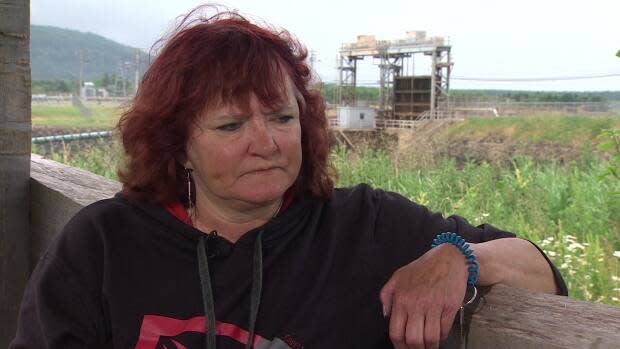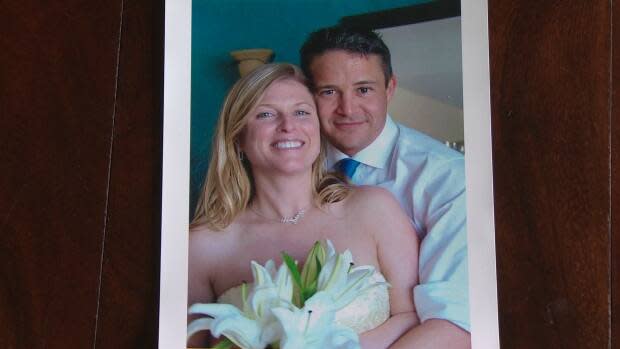A phenomenon called Delta P can kill occupational divers. One death is prompting a push for change

The family of a man who drowned six years ago in Nova Scotia and a diving safety advisor who has been examining his death are calling for changes to make underwater work safer in an industry plagued by fatalities.
Angela Seabrook said like many of the people drawn to diving, her son, Luke, loved exploring and wasn't afraid to take risks.
"But that doesn't mean to say that they have to lose their lives over it," she said from her home in Wasaga Beach, Ont. "The risk can be minimized…. So they can go on another adventure."
Luke Seabrook, 39, died while trying to conduct an underwater inspection of a sluice gate that controlled the flow of water into a reservoir at the Nova Scotia Power Tidal Plant in Annapolis Royal, N.S. It was later determined the gate wasn't completely closed and Seabrook became pinned by the force of the water, a phenomenon known as Delta P or differential water pressure.
The hazard of Delta P is avoidable with proper preparation and detection, said Steve Donovan, a former military and commercial diver who now does consulting work through the Occupational Diving Safety Association. Yet it remains a common cause of death in the diving world, and Donovan is urging changes to government regulations and industry standards to better address the threat.
In Seabrook's case, the water was rushing from a higher elevation to the basin's lower elevation and it created a suction that was impossible to escape.
"You don't see it, you don't hear it, it's usually too late once you're caught by it," Donovan told CBC. "It's about preventing yourself from getting caught, because once you're caught it's too late."
1 in 4 deaths Delta P-related
A 2016 analysis conducted by a diver in Belgium found Delta P caused nearly a quarter of 577 diving deaths in a variety of counties, including Canada.
Donovan, who once narrowly escaped getting trapped underwater in Halifax's Bedford Basin, said too often people underestimate the force.
This month he released his own report that he spent months putting together after examining regulations, past fatalities and different countries' approaches to diving safety.

In it, he looked at the specifics of Seabrook's death and called for more than a dozen changes, including that the industry use more technology and do more to assess risks before anyone goes in the water.
He believes the work Seabrook was tasked with should have been routine and could have gone ahead without incident at slack tide, when the water — connected to the mighty Bay of Fundy — wasn't rising or falling. But he also said lessons could apply to other dives.
"Poor planning is probably the No. 1 cause of every diving incident and fatality," he said.
Use of remote technology
Specifically, Donovan wants to see more done to ensure divers are aware of and equipped to detect Delta P. He is calling for the industry to use more remote operated technology, such as electronic metres to measure water flow, to detect the threat in advance of putting anyone in the water. He said while the equipment is expensive, it can save lives.
He also said site owners bringing in divers to do work must play a larger role in assessing any potential hazards and communicating information about the area to the team conducting the work. He said it's important for them to consult experts to better understand water currents at their sites. He thinks engineers with experience in hydraulics should review dive plans.
"The person signing the cheque has a lot of control over what happens," he said. "It's not just the dive team. Everybody that is involved, they have some level of responsibility to ensure this dive is safe. The number one thing is that the divers have all the information necessary to make their decisions."

The newly reorganized Nova Scotia Department of Labour, Skills and Industry said it's aware of Donovan's report and they "share the common goal of making diving workplaces safer."
In the spring, the department said it planned to work closely with the diving industry this year.
Staff are "currently planning broader engagement with industry stakeholders, including divers, diving industry representatives, companies that hire divers for contract work, and other jurisdictions," spokesperson Khalehla Perrault said in an email last week.
The plan is to "identify best practices and actions that will improve diving safety, such as the use of remote technology," she said. The current provincial Occupational Diving Regulations, which the province said were developed after consulting with people in the industry, don't include any mention of it.

Donovan he said he didn't want to point fingers in relation to Luke Seabrook's death or the investigation into it, but hopes shining light on ongoing issues prompts "positive change," including more training options and approaches that go beyond meeting regulations.
The report isn't the first time people in the field have called for the case to be a catalyst for changes.
After Seabrook's death, the Department of Labour investigated and that led to charges under the provincial Occupational Health and Safety Act. Seabrook's employer, Paul's Diving Services, and its owner, Greg Paul, pleaded guilty to failing to have an adequate dive plan in place and failing to assess whether the dive was happening in hazardous conditions.
Seabrook's mother filed a lawsuit against the site owner, Nova Scotia Power, but said she eventually dropped it because due to a workers' compensation settlement, there was no prospect of damages being awarded.

Angela Seabrook said Donovan's work has helped her better understand what happened to her son. Like other families who have lost loved ones at work, she said the provincial investigation was not transparent and failed to answer her core questions about the decisions that led to Luke's death.
She said there have been no steps taken to quell her fears that another diver could die.
"I hope [the report] goes to the top: all the stakeholders in the dive industry," she said. "That will make us feel better about Luke's passing, that things have changed for the better."
MORE TOP STORIES

 Yahoo Movies
Yahoo Movies 